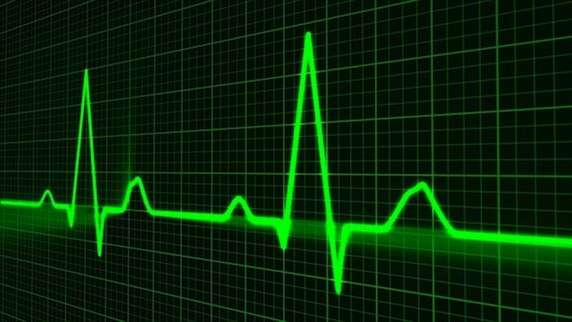Heart muscle disease patients benefit from defibrillator

Some heart disease patients who are treated with cardiac resynchronisation therapy (CRT) would live longer and have fewer hospital admissions if they also received a defibrillator, concludes a team of researchers led by Aston Medical School at Aston University.
The device could be beneficial to patients diagnosed with non-ischaemic cardiomyopathy - chronic disease of the heart muscle - who also have heart muscle scars.
The results of the study – Clinical outcomes of Cardiac Resynchronisation Therapy with or without defibrillation in non-ischemic cardiomyopathy: impact of left ventricular midwall fibrosis – were published recently by the Journal of the American College of Cardiology.
Professor Francisco Leyva, Professor of Cardiology at Aston Medical School, led the research and said: "Previous studies have ruled out defibrillators as being beneficial for people undergoing CRT as treatment for cardiomyopathy. However, these studies did not use MRI scans to detect scar tissue within the muscle of the patient's heart.
"Our study is the first to use MRI scans to determine whether patients with non-ischaemic cardiomyopathy who have a defibrillator fitted do better than those who are given a pacemaker.
"The findings show that the addition of a defibrillator would be very advantageous to patients who also have heart muscle scar tissue in that they will potentially live longer and will be less likely to be admitted to hospital for heart failure or other cardiac problems."
The study involved 252 patients with cardiomyopathy from the Queen Elizabeth Hospital and Good Hope Hospital in Birmingham over a period of up to 14 years. Of the 252 patients, 68 also had heart muscle scarring.
"The findings have implications for the choice of device used to help treat patients with non-ischaemic cardiomyopathy," added Professor Leyva.
"We are recommending that defibrillators should be added to patients with cardiomyopathy with heart muscle scars who are being treated with cardiac resynchronisation therapy."
CRT is an implanted device that co-ordinates the contractions between the heart's left and right ventricles, while an implanted defibrillator helps to control life-threatening arrhythmias, or irregular heartbeats, that might lead to sudden cardiac arrest.
In cardiomyopathy, the heart muscle becomes enlarged or thickens and in some cases muscle tissue is replaced with scar tissue. As the disease progresses, the heart grows weaker and less able to pump blood around the body and maintain normal electrical rhythm. This can lead to heart failure, irregular heart beat and complications including a build-up of fluid in the body and heart valve problems.
Cardiomyopathy affects people of all ages and there are numerous causes including it being genetic or as a result of other health conditions and diseases.
Treatment includes lifestyle changes, drug therapy, surgery and implanted devices.
More information: Francisco Leyva et al. Outcomes of Cardiac Resynchronization Therapy With or Without Defibrillation in Patients With Nonischemic Cardiomyopathy, Journal of the American College of Cardiology (2017). DOI: 10.1016/j.jacc.2017.07.712


















